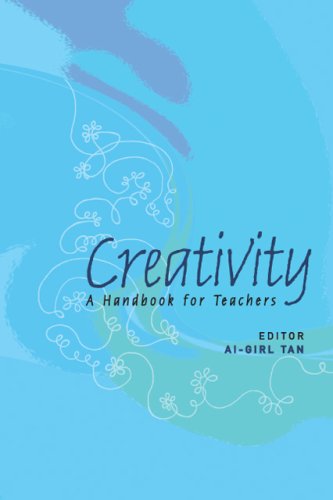

Most ebook files are in PDF format, so you can easily read them using various software such as Foxit Reader or directly on the Google Chrome browser.
Some ebook files are released by publishers in other formats such as .awz, .mobi, .epub, .fb2, etc. You may need to install specific software to read these formats on mobile/PC, such as Calibre.
Please read the tutorial at this link: https://ebookbell.com/faq
We offer FREE conversion to the popular formats you request; however, this may take some time. Therefore, right after payment, please email us, and we will try to provide the service as quickly as possible.
For some exceptional file formats or broken links (if any), please refrain from opening any disputes. Instead, email us first, and we will try to assist within a maximum of 6 hours.
EbookBell Team

4.8
84 reviews
ISBN 10: 9812770860
ISBN 13: 9789812770868
Author: Tan Ai-girl
Creativity: A Handbook for Teachers covers topics related to creativity research, development, theories and practices. It serves as a reference for academics, teacher educators, teachers, and scientists to stimulate further “dialogue” on ways to enhance creativity.
Part One: Exploring the Nature of Creativity
Chapter 1: Creativity as a Habit
Chapter 2: Creativity and Motivation in the Classroom: A Social Psychological and Multi-Cultural Perspective
Chapter 3: High Ability and Creativity: Conceptual and Developmental Perspectives
Chapter 4: Creativity and its Cultivation
Section II: Research in Creativity
Chapter 5: The Biological Basis of Creativity
Chapter 6: Creativity Research and The Classroom: From Pitfalls to Potential
Section III: Identification and Assessment
Chapter 7: The Two Torrance Creativity Tests: The Torrance Tests of Creative Thinking and Thinking Creatively in Action and Movement
Chapter 8: Identification of Talents
Chapter 9: Assessing Creativity: A Componential Model
Part Two: Nurturing Creativity
Chapter 10: Education Toward the Future: Asking Questions
Chapter 11: Creativity in Special Education
Chapter 12: Using Assessment to Foster Creativity
Chapter 13: Possibility Thinking in the Early Years and Primary Classroom
Chapter 14: Training Methods of Creative Learning and Practice
Chapter 15: Use of Word Symbol Puzzles to Foster Creativity Among Students
Section V: Experience with Adults in Enhancing Thinking Skills for Creative Problem Solving
Chapter 16: Enhancing Thinking and Leadership Skills through Creative Problem Solving
Chapter 17: Cultivating Critical and Creative Thinking Skills
Chapter 18: The Japanese Creativity Education and Creativity Techniques: A Perspective from the Enterprise
Part Three: Creativity in Contexts
Section VI: Disciplinary Perspectives
Chapter 19: Academic and Global Contexts for Creativity: Interdisciplinary Perspectives
Chapter 20: Technology-Enhanced Creativity
Chapter 21: Programmer Creativity
Chapter 22: Automated Assessment of Creative Solutions in Mathematics through Comparative Parsing
Section VII: Self and Other Perspectives
Chapter 23: Fostering Creative Behavior in the Asian Classroom: The Role of Self-Regulatory and Self-Motivational Processes
Chapter 24: Promoting Children’s Personal Strengths: Positive Psychology Goes to School
Chapter 25: Creativity in Rehabilitation Psychology
Chapter 26: Constructive Creativity in Education
Chapter 27: Creativity and the Brain
Chapter 28: Culture and Creativity in Organizations: An Integration of Commonalities, Divergences, and Paradoxes
handbook for creative teaching
creative writing handbook pdf
creativity a handbook for teachers
the cambridge handbook of creativity pdf
Tags: Tan Ai girl, Creativity, Handbook, Teachers